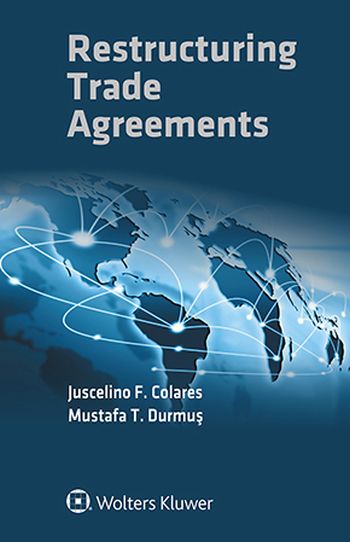
Restructuring Trade Agreements, a thorough and extraordinarily perceptive book that uses the growing deterioration of the European Union-Turkey Customs Union as an illustration to a new model of trade-agreement restructuring, sketches out and establishes how this and other trade arrangements can be successfully renegotiated. This remarkable book furnishes expert pragmatic guidance to a crucial problem of trade law and policy that is seldom awarded the attention it deserves: trade bargain erosion. To address trade-bargain erosion, countries involved in large-scale, bilateral or regional trade arrangements must reconcile the need to rebalance close economic ties with maintaining supply chains as they pursue new opportunities with other partners.
What’s in this book:
The book combines an innovative, instrumentalist framework with a clearly articulated legal foundation, a transactional deployment strategy, and a sequential negotiating approach applicable to bilateral and regional trade arrangements whose original terms no longer reflect the changed capabilities and interests of at least one of its sovereign parties. The authors address the following in detail:
The book provides a much needed framework for identifying and investigating trade arrangements that are ripe for renegotiation and assessing sources of domestic and external support for (and against) renegotiating such bargains.
How this will help you:
This book’s model of international trade-agreement restructuring fits well with emerging thinking on greater trade diversification and supply-chain resilience. The authors provide a clear, actionable approach for considering and conducting the renegotiation of trade deals. Considering these reasons, it will be highly appreciated by trade lawyers, supply-chain executives, economists, government officials, and academics who are battling with rising economic frictions in the fault lines of national sovereignty, economic interdependence, and the limits of current trade arrangements.